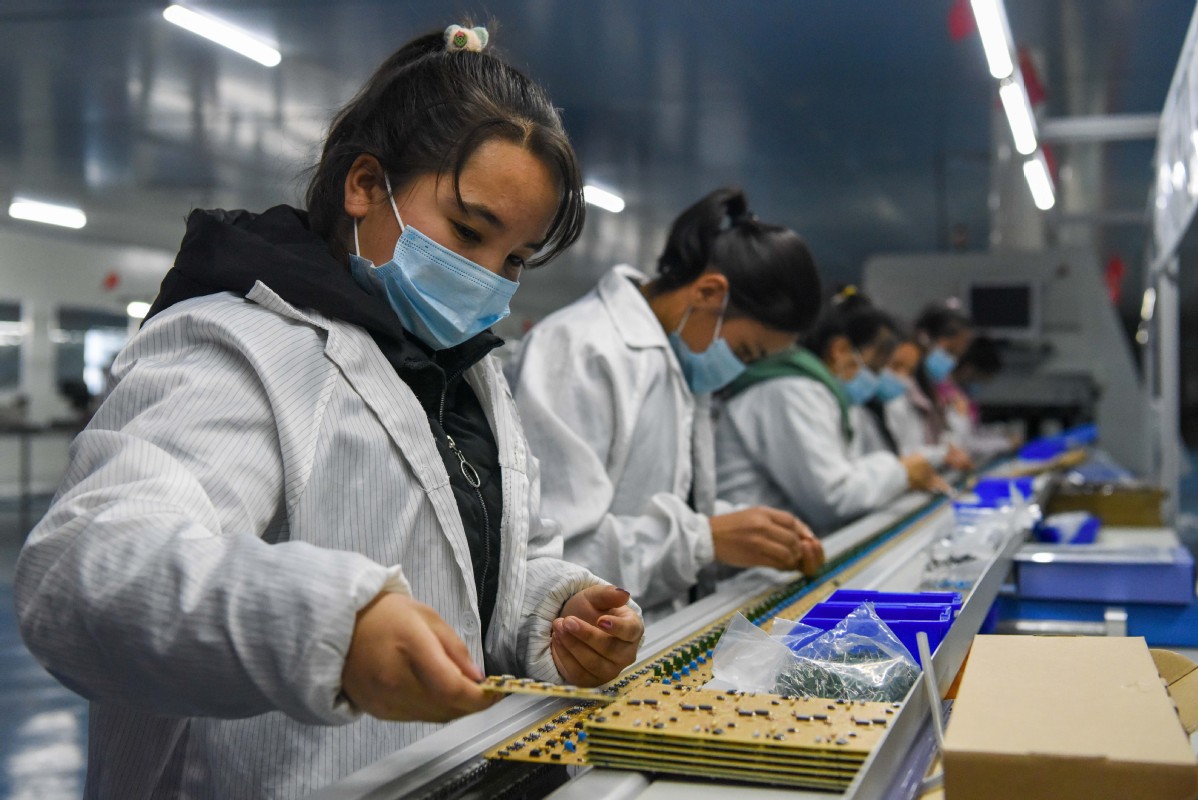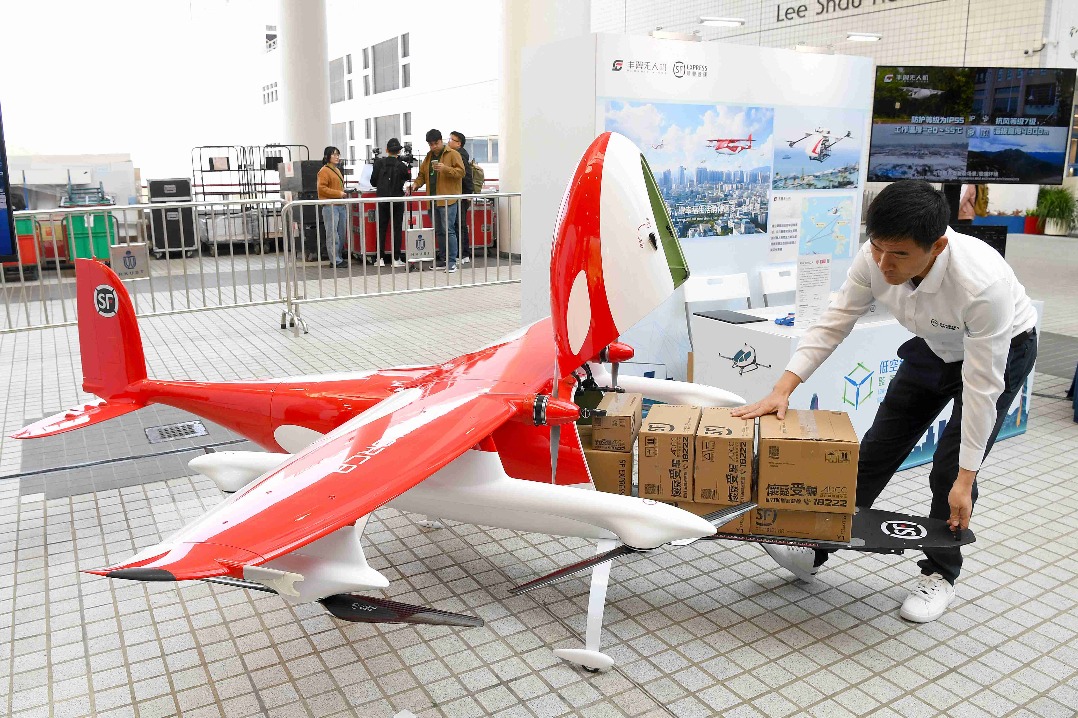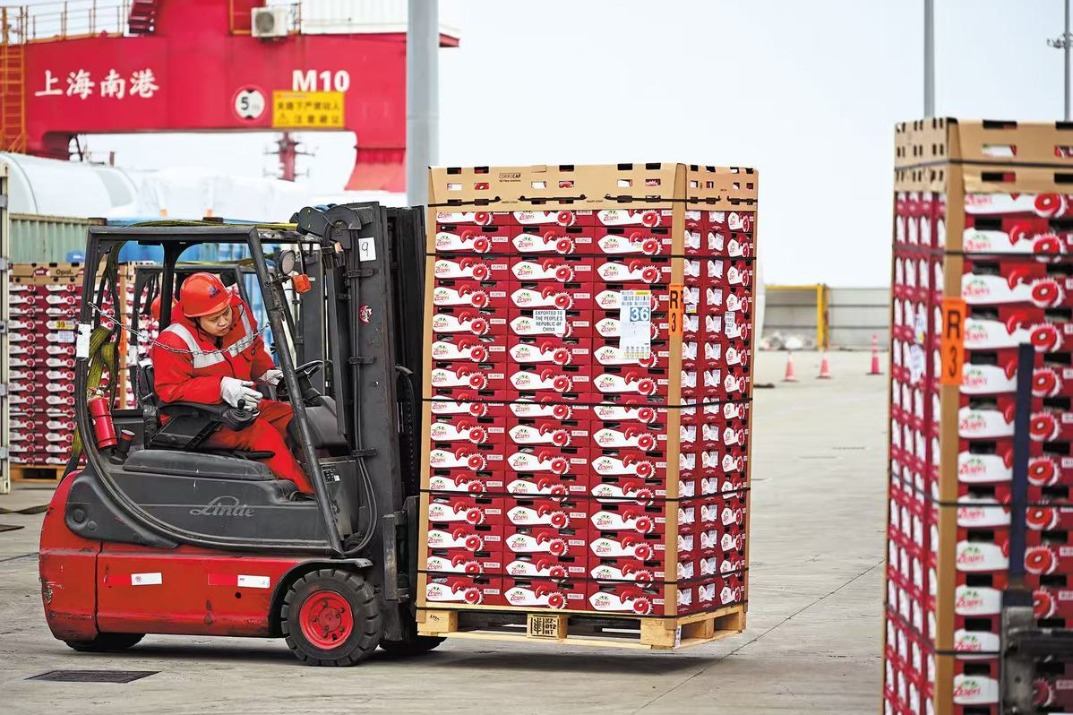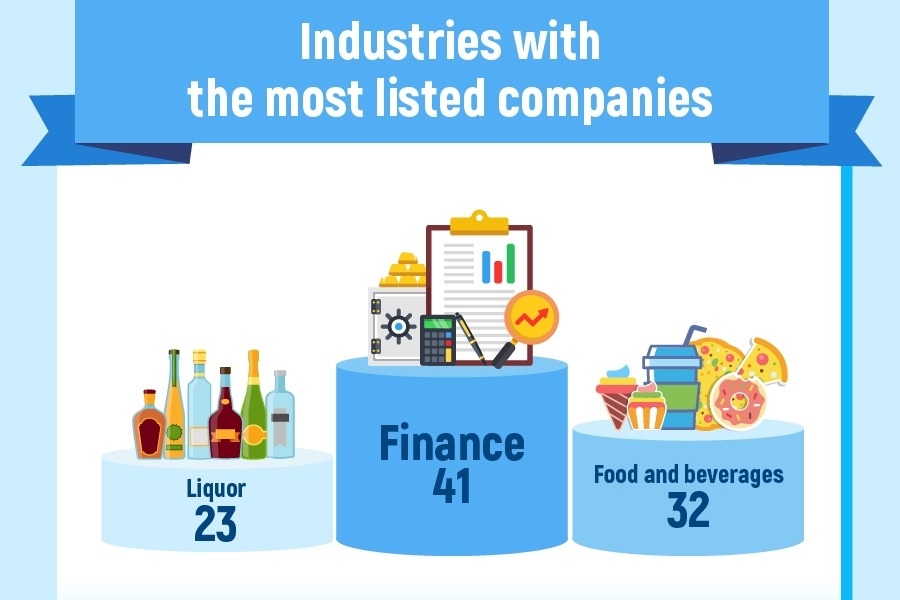SME indexes dip, reflecting seasonal, COVID slowdowns


Experts highlight smaller firms' role in economic growth, urge more support
China's Small and Medium Enterprises Development Index fell slightly in January due to sporadic cases of COVID-19 reported in different areas of the country ahead of the Spring Festival as well as the seasonal Lunar New Year effect. Experts expect Chinese SMEs will continue their role as key contributors to the nation's economic development in the still difficult year of 2021.
The SME Development Index, based on a survey of 3,000 SMEs, fell 0.2 point from the previous month to 87 in January, the latest industry data showed.
The decline came after reporting gains or flat growth for six straight months, but the index remained the third-highest since the COVID-19 outbreak, according to the China Association of Small and Medium Enterprises.
A mild drop in the figure is a Spring Festival holiday convention, when orders booked the previous year were mostly completed, and new ones for the coming year are yet to be placed, said Zhou Dewen, economist and deputy head of the association.
Pan Jian, executive assistant at Zhejiang Grandwall Electric Science& Technology Co Ltd, called the little correction "the Lunar New Year effect".
Traditionally, employees working far away from home will go back for annual family reunions before Lunar New Year, which fell on Feb 12 this year, and production is usually not completely restored until the Lantern Festival, 15 days after the Lunar New Year begins, Pan said.
In Grandwall Electric's case, 75 percent of its 255 non-local employees returned home this year.
Despite the effective measures taken in containing COVID-19 across the nation, some new confirmed cases have been reported recently.
The tightening preventive measures will work to erode overall demand, which is still in the process of restoration since the outbreak of the pandemic, said Liu Mingyu, associate professor at the school of management, Fudan University.
"The impact of the complicated international environment and economic uncertainties facing the Chinese economy cannot be neglected amid China's dual-circulation development pattern, in which domestic and international circulation complements each other," Zhou said.
The index contains multiple subindexes to gauge the performances and expectations of SMEs. A reading below 100 indicates less than robust vitality.
In January, the subindexes for the sentiment on the macroeconomy, operating costs, financing and the labor force edged down but remained above 100.
The cost rises for SMEs result from a combination of the seasonal effect together with more expensive raw materials, Liu said.
Compared to their peers in larger scales, smaller companies are in a more inferior position in confronting higher costs, and as a result, their profitability is greatly challenged.
"In the past year, we have witnessed tens of thousands of SMEs go out of business, and numerous firms are struggling to survive. At this critical time, we believe this is the predawn darkness," Zhou said.
The steady profitability subindex showed fees and tax cuts are effective in maintaining SME business health, Liu said.
As challenges continue, experts called for more support for SMEs in various forms, be it financing, cost cuts or boosting demand.
"SMEs are under great pressure in terms of operations, marketing, sales, talent shortages, business transformation and supply chain restructuring. But we firmly believe that they will eventually come out of the haze as China's economy advances," said Lei Xinjun, an associate research fellow specializing in international trade and investment at the Shanghai Academy of Social Sciences' Institute of Economics.
Subindexes gauging sentiment in different sectors continued to diverge. The real estate index rose and the wholesale and retail indexes remained flat, while indexes covering transportation, computers and software as well as accommodations and catering saw a weakening trend.
The index went up in eastern and western regions, while it decreased in central and northeastern China.
SMEs contribute more than half of the nation's GDP, and they are responsible for more than 80 percent of China's urban employment, Zhou said.




































